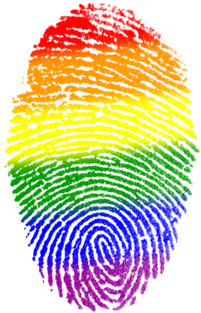Bisexuality Counselling
 Human sexuality is complicated.
The complexities of romantic, emotional and sexual attraction are difficult to define
- no one example can sum up what it means to be bisexual. There is no set rule when it comes to attraction to another person, be that personality, physical appearance,
or what you feel comfortable with.
Human sexuality is complicated.
The complexities of romantic, emotional and sexual attraction are difficult to define
- no one example can sum up what it means to be bisexual. There is no set rule when it comes to attraction to another person, be that personality, physical appearance,
or what you feel comfortable with.
Many people hold the view that one is either heterosexual or homosexual, so for people growing up in such a society, being sexually attracted to both sexes may feel frustratingly perplexing, as they have to cope living with uncertainty. Coming to terms with one’s own sexuality can be very difficult and at times one may feel alone and anxious.
Misunderstanding bisexuality
Bisexuals are often misunderstood. Many people just don't understand how anyone can be attracted to people of both sexes. They are not only stigmatised by mainstream society but sometimes even discriminated against in LGBT communities. Common prejudicial misconceptions about bisexuality include:
- they are really just gay but afraid to admit it
- they just cannot make up their minds
- bisexuality equals infidelity
- all bisexuals are promiscuous
- they are just confused
Bisexuals in relationships
People in relationships or marriages, often feel ashamed of the secret of their same-sex attraction and feel the need to hide that aspect of themselves. Leading a ‘double life’ as a bisexual can be very difficult to navigate without support, as one’s life journey can be fraught with guilt, shame and pain for all involved.
Finding your identity
If you think you may be bisexual, questioning your sexuality, or feel pressured into making a choice between male or female partners you may struggle to define who you are. Experiencing a lack of freedom to be yourself and accepting your sexuality can be challenging, particularly when you come up against the expectations of others. Therapy offers you a space to explore and make sense of your sexuality - talking about it with someone who is non-judgemental can help you to know yourself and feel more secure in your identity.
Also see Sex, sexuality & gender.
